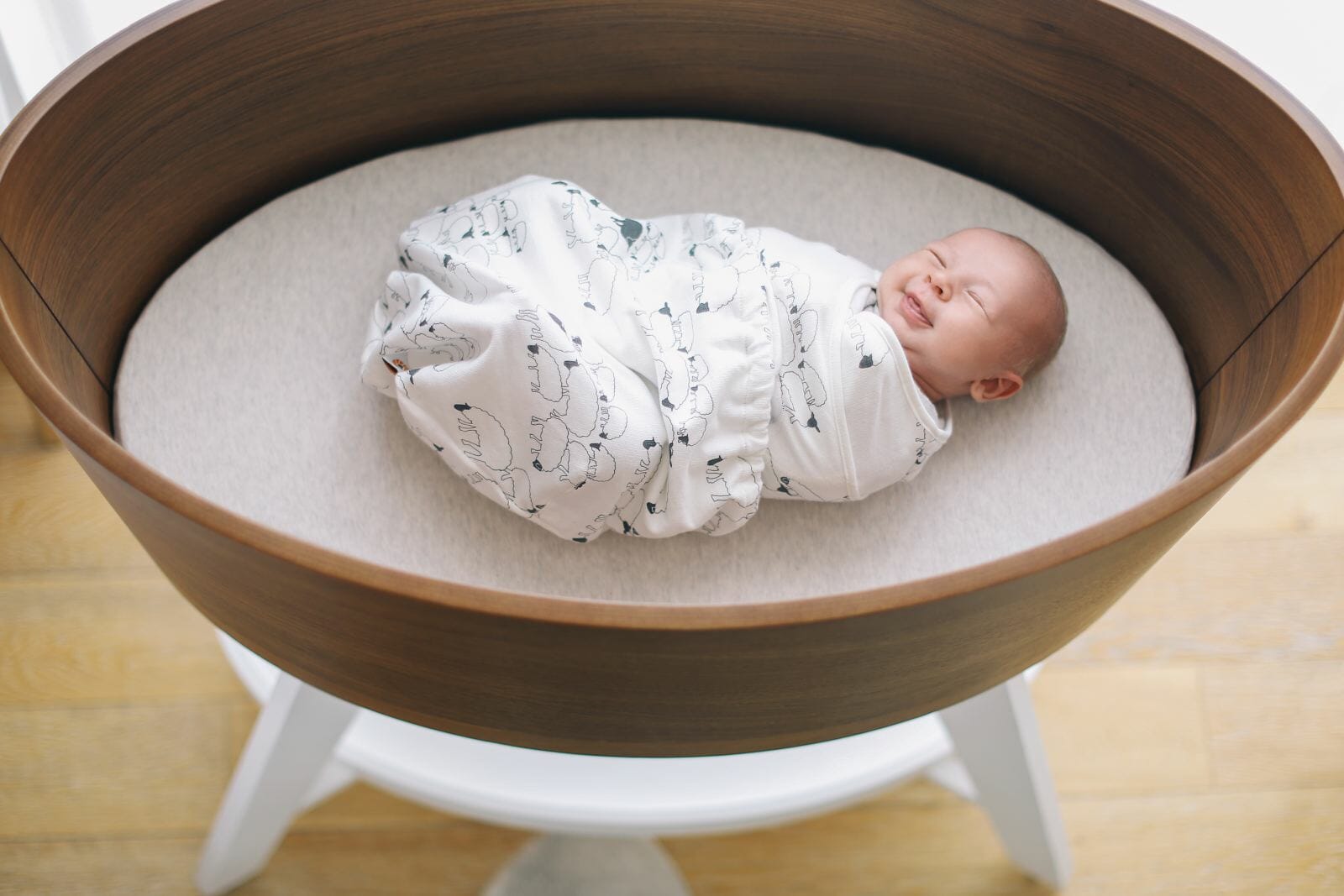
There’s nothing like the holidays to throw off your daily routine. But (somewhat) lucky for you, babies aren’t born knowing when it’s day or night, when it’s time to play or when it’s time to sleep. Like with feeding and changing, your baby depends on you to teach them an everyday routine.
So if things have been a little off, now is the time to get back in to a good groove. Doing the same things around the same time every day creates a calming feeling of familiarity for your baby. She’ll start anticipating what comes next and so will you, so you can plan your day’s activities accordingly, which will help you keep your sanity and hopefully get more sleep!
So where do you start? We recommend starting right here with these 5 easy steps.
1. Teach your baby the difference between day and night.
It’s common for babies to get their days and nights mixed up. If your baby has this problem, teach him how to distinguish daytime from nighttime. Some simple ways to do this include keeping your home bright and somewhat noisy during the day, and then dark and quiet at night. This will show him that daytime is for playtime and nighttime is for bedtime. I also know some moms who put their baby in their pajamas before bed and then change them again in the morning to signal that the day is ending and a new one is beginning.
Whatever you choose to do, once your baby knows day from night, it’s so much easier to get your baby into a regular routine.
2. Read your baby’s cues.
Your baby can’t tell time. She’s not going to wake up at 7 a.m., eat every 3 hours on the dot or sleep at the same time every day. When your baby is hungry, she’ll let you know. When your baby is tired, she’ll let you know. The key is watching your baby and learning when those times are each day so you can feed her and put her to sleep before she’s starving or overtired. Many parents keep a log for a few days or weeks to help them learn what natural pattern their baby is already following, such as play, eat, sleep or sleep, eat, play. By understanding and following your baby’s cues and natural rhythm, you’re able to meet your baby’s needs and establish a day-to-day routine that works for your baby and your family.
3. Establish a bedtime routine.
If you want a successful daytime routine – and a happier mom and baby – then start with setting a regular bedtime routine. The benefits of a bedtime routine go far beyond having a baby who sleeps better and helps you have a successful daily routine. A consistent bedtime routine also contributes to language development, emotional regulation, school readiness and other positive physical, emotional and behavioral developmental outcomes for years to come.
Find what works for you, but here are some general bedtime routine tips that many families use:
- Bath
- Diaper change
- Put pajamas on
- Feed
- Read a bedtime story
- Sing a lullaby
- Wrap baby in a swaddle or put him in a baby sleep bag
- Lay the baby down in the crib, kiss his forehead and tell him goodnight.
Start introducing a few of these, like giving a bath, putting on pajamas and nursing or giving a bottle in dim light, around 4-6 weeks old. At this age, your baby may still wake up 2-3 hours later and that’s OK. You’re laying the foundation for good sleep habits, and that’s important to do early on.
Some parents introduce a short bedtime routine from day one. But for sure you want to have a 20-30 minute bedtime routine in place around 3 months old, and then you can keep this routine through toddlerhood.
Explore Ergobaby Sleep Products
4. Be OK with saying no.
When starting a regular routine for your baby, that routine should come first. This may mean you’ll have to say no to parties, lunch with friends, a family vacation, etc. But like my mother-in-law always tells me, “This too shall pass. It’s only a short season of your life.” You don’t have to become a recluse after having a baby, but you will have to put your baby and her routine first for a while.
5. Remember to set a flexible routine, not a rigid schedule.
Your baby won’t always eat and sleep at the same time every day. Your baby may wake up early one morning or life may throw you a curveball. You may also have to adjust your routine as your baby grows and goes through different developmental stages. As long as your baby is getting enough sleep, awake time, food and love, you’re doing great!
Do your best to keep your daily routine pleasant and consistent, but also have patience with yourself and your baby and make room for some flexibility. Some babies are easy to get on a schedule, while others struggle. Some parents have success training their baby to follow a routine they want, while others work around their baby’s natural cues. So while every parent and parenting expert will give you advice, never forget that you know your baby’s personality and what will work best for him.

























